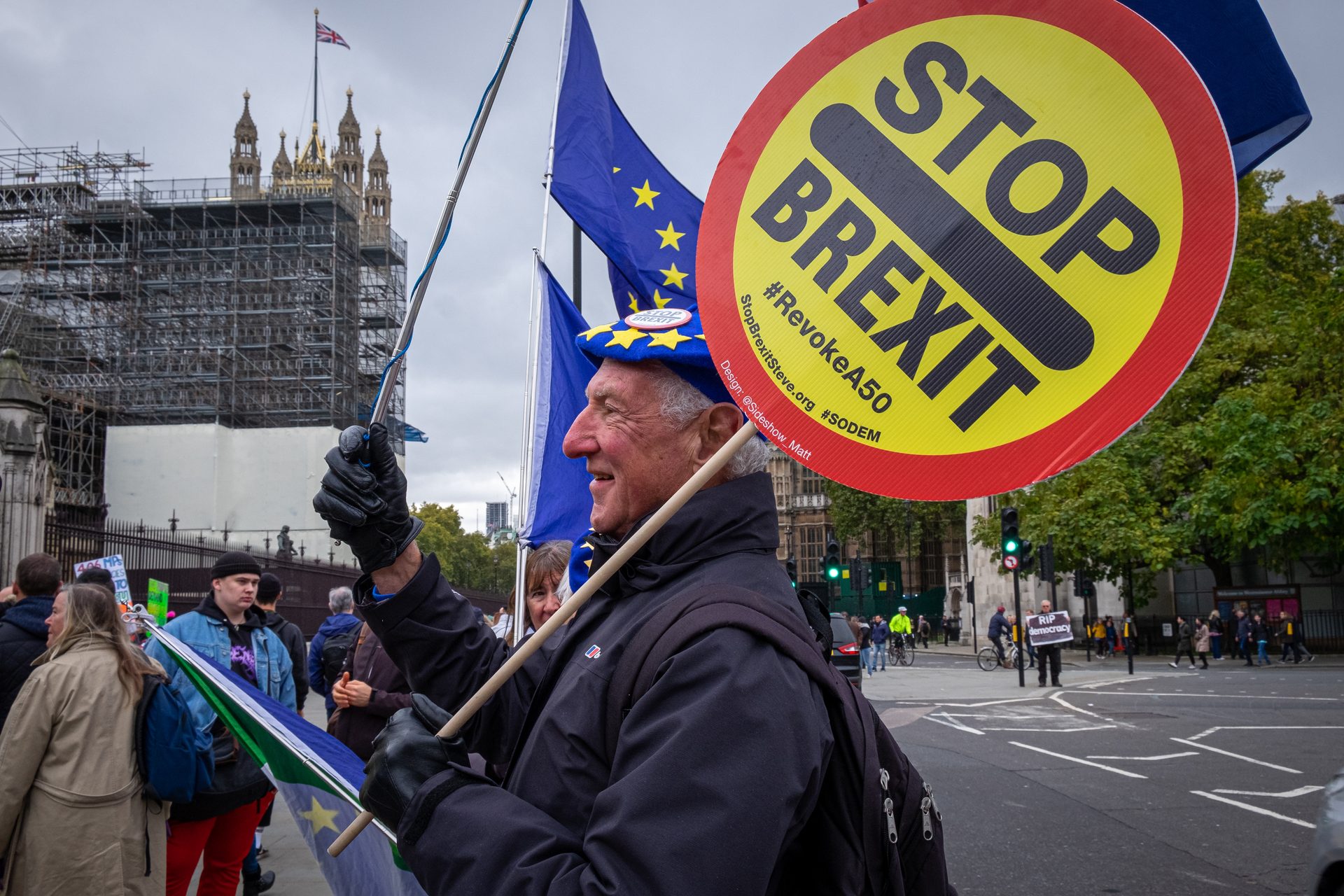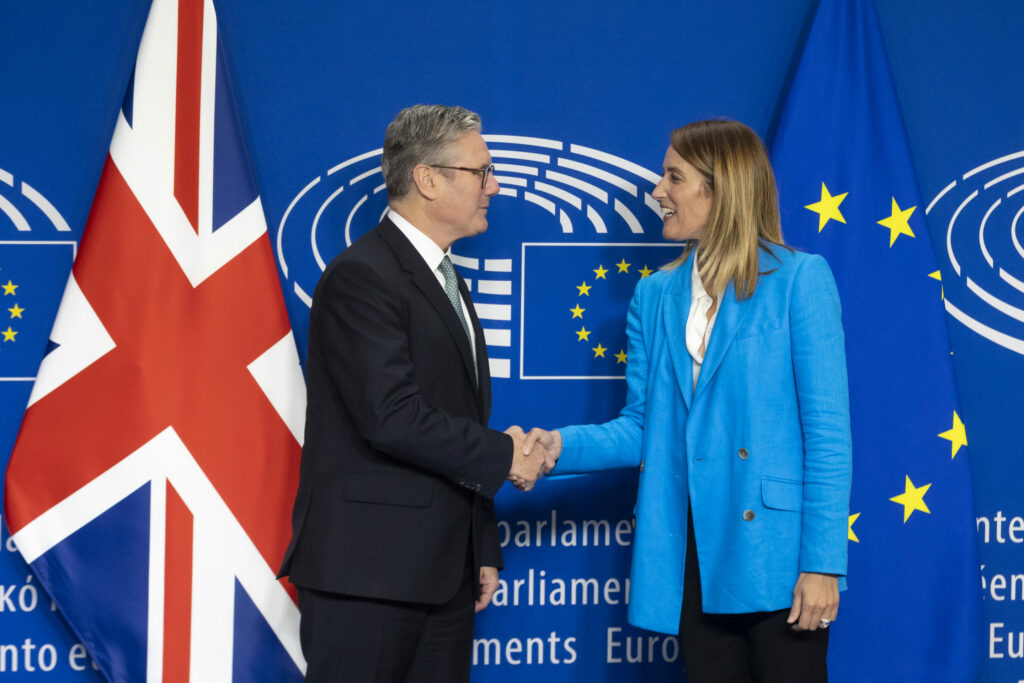Five years after Brexit, we are now faced with the question of how to reorganise relations between the United Kingdom (UK) and the European Union (EU) in a global context dominated by geopolitical rivalries, writes Sandro Gozi MEP and chair of the EU-UK delegation in the Parliament.
As the world enters an era in which the ambitions of the great powers (USA, China and Russia) drive a new global disorder, the challenge for us Europeans and Britons is now to move beyond the aftermath of our divorce to forge a common strategy.
The current geopolitical scene is marked by fierce competition between powers that follow an imperial logic. Under Trump's presidency, the United States is determined to build new spheres of influence at the expense of its historic allies in North America and in Europe, as we can observe in the case of Greenland.
At the same time, Russia and China are stepping up their destabilising actions in the form of cyberattacks, disinformation campaigns and other strategies aimed at weakening European democratic structures and denying the free will of the people, in Kyiv, Taipei and elsewhere.
In the face of these growing external threats, it is imperative for the UK and the EU to rethink their relationship, not merely in terms of post-divorce management, but as a strategic collaboration to reconstruct a new architecture of security and stability on the European continent. The new European Political Community (EPC) could offer new ground for cooperation in areas such as defence and security.

MEPs in the European Parliament embrace their British former colleagues on 31 January 2020, the day that the UK officially left the EU. Credit: Belga
With countries like France, Germany, Poland, Sweden and Italy set to become a true security vanguard of a Union that is more operationally efficient and capable of quicker decision making, the UK could play a central role in sharing its expertise and strengthening Europe’s defence industrial base. A joint increase in military budgets and industrial cooperation projects, supported by a reform of the Union to overcome institutional deadlocks, as we European Democrats advocate for, will be an essential step. And of course, as Europe's only two nuclear powers, France and the UK will always play a central role in European security.
In addition to defence, there are other areas that require closer cooperation. Energy, in particular, is a crucial priority for tackling the climate crisis and ensuring security of supply in the face of external dependencies. Collaboration on environmental initiatives, the sharing of strategic investments and the transition to renewable energies could position Europe as a leader in the fight against climate change.
Furthermore, emerging technologies, notably artificial intelligence, represent a strategic area where an alliance between Europe and the UK would be decisive. By developing ethical standards and innovation policies together, both sides could prevent unilateral technological domination by the US or China, while at the same time boosting their own competitiveness.

An anti-Brexit protest in London, United Kingdom, Tuesday 29 October 2019. Credit: Belga / Kurt Desplenter
The social consequences of Brexit, particularly for younger generations, should not be overlooked. The end of the UK's participation in the Erasmus program has considerably reduced mobility opportunities. It is essential to offer new opportunities to our youth, to include not only university students, but also high school graduates or young people in vocational training. These efforts would help strengthen cultural ties and cultivate mutual understanding between future generations of Europeans and Britons.
The informal EU summit, with the participation of Keir Starmer, scheduled for next week offers a strategic opportunity to initiate discussions on these possible avenues for cooperation, especially with regards to our defence industries and advanced technologies.
In addition, the EU-UK Parliamentary Partnership Assembly (PPA), that “little” Euro-British Parliament which we are due to convene in mid-March, will be a crucial moment for the people’s representatives to outline the expectations of both sides on our future relationship. We should seize this opportunity to define an ambitious roadmap for the 2025-2029 period ahead of the EU-UK summit.
It would also be a good omen if the EU-UK summit were to directly involve parliamentary representatives from both sides, notably the President of the European Parliament, Roberta Metsola, and her British counterpart. This strengthened institutional dialogue will ensure the legitimacy of the discussions and support their effective implementation. I also sincerely hope that Marsha de Cordova and I, as co-chairs of the EU-UK PPA, will be involved.
The future of EU-UK relations will depend on our ability to work together in the face of global challenges. Cooperation on defence, energy, advanced technologies and opportunities for our youth is essential to ensure the continent's prosperity and security.
In this context, we should not look to the recent past but instead concentrate our efforts to promote a new strategic partnership, anchored in a common response to the global challenges of the 21st century. At a time when the world is rapidly changing, a new relationship seems like a very good idea. But now the time has come to turn our words into action.
Sandro Gozi is Secretary-General of the European Democratic Party and Member of the European Parliament (France) since 2020. He is chair of the Delegation to the EU-UK Parliamentary Partnership Assembly

